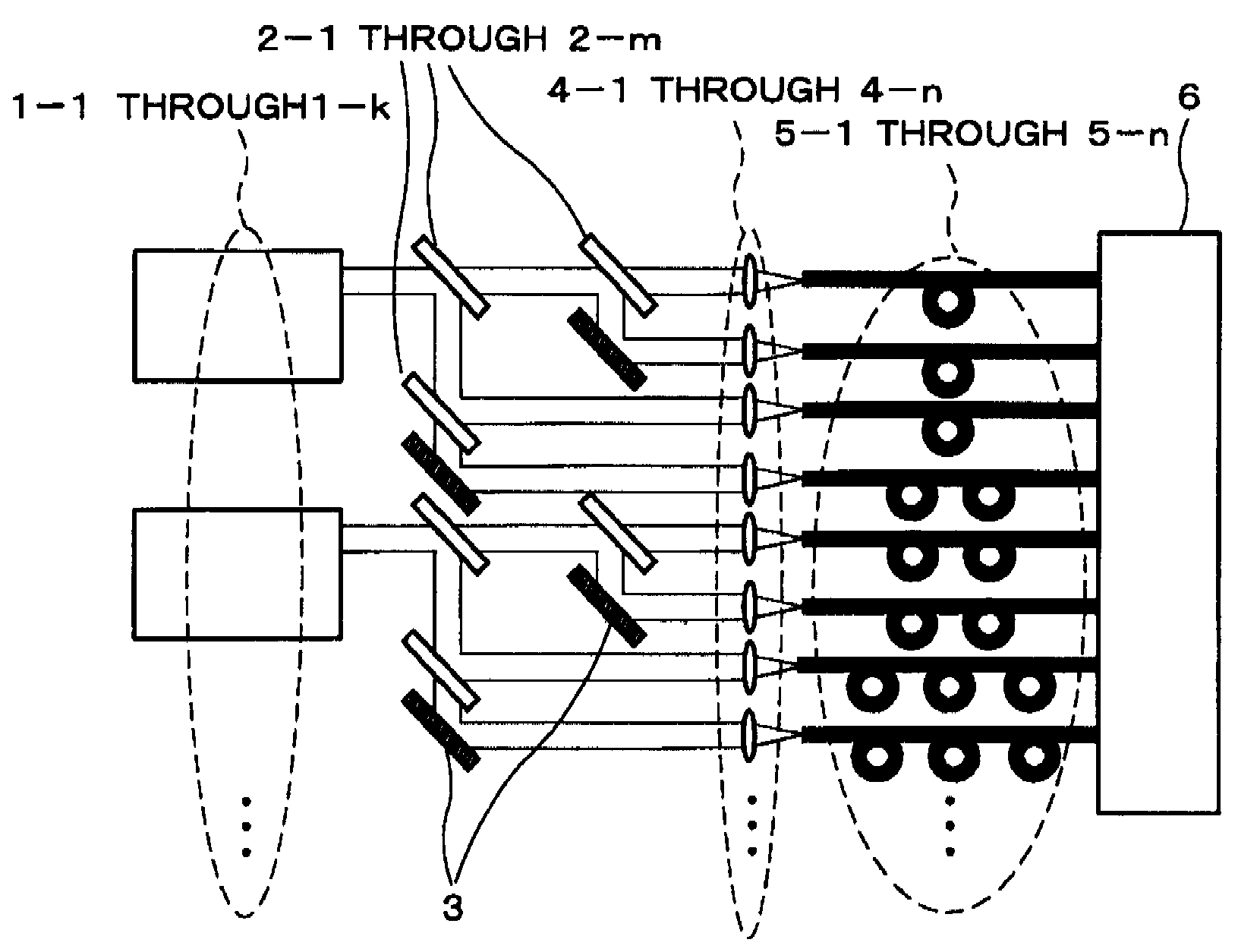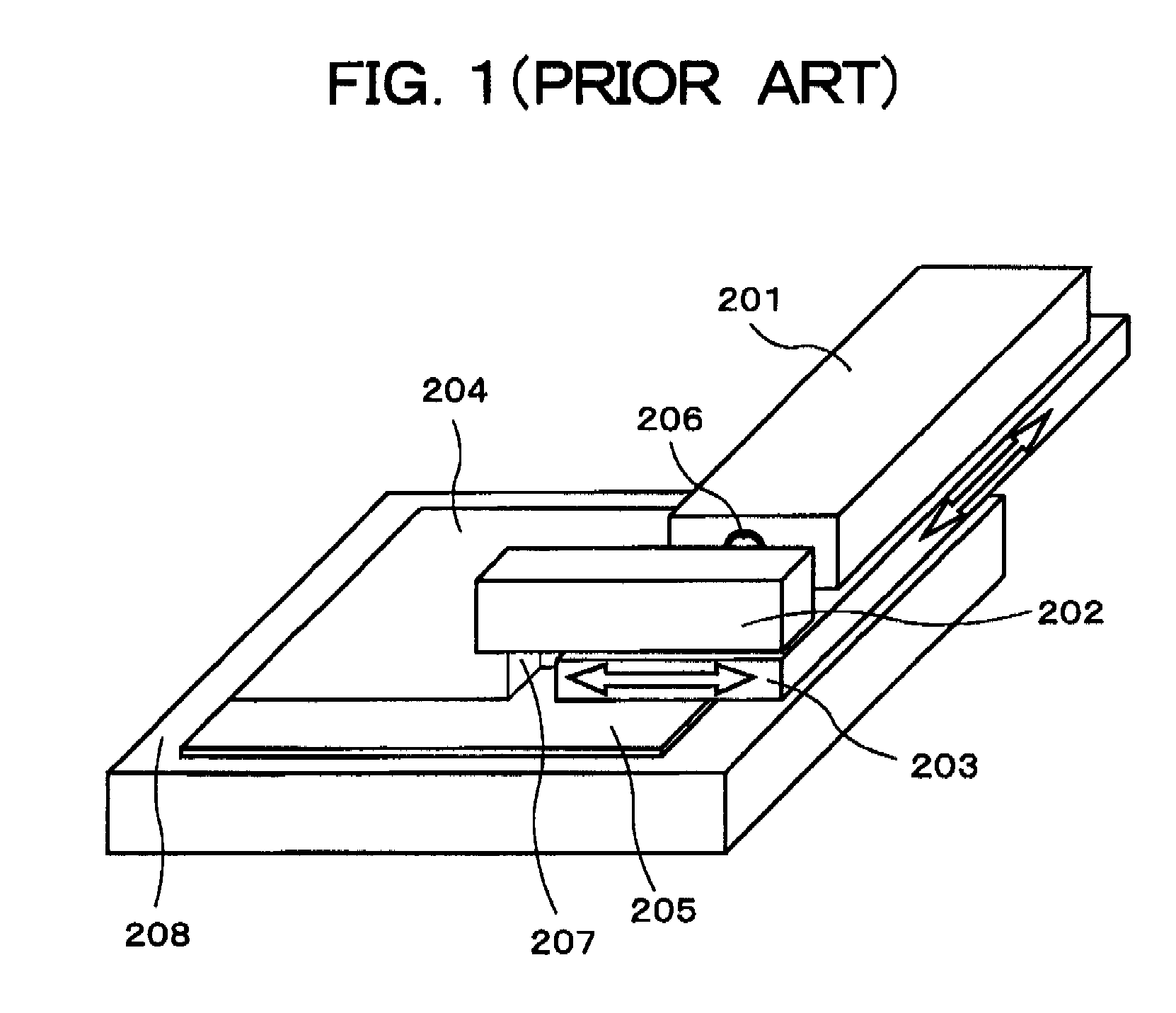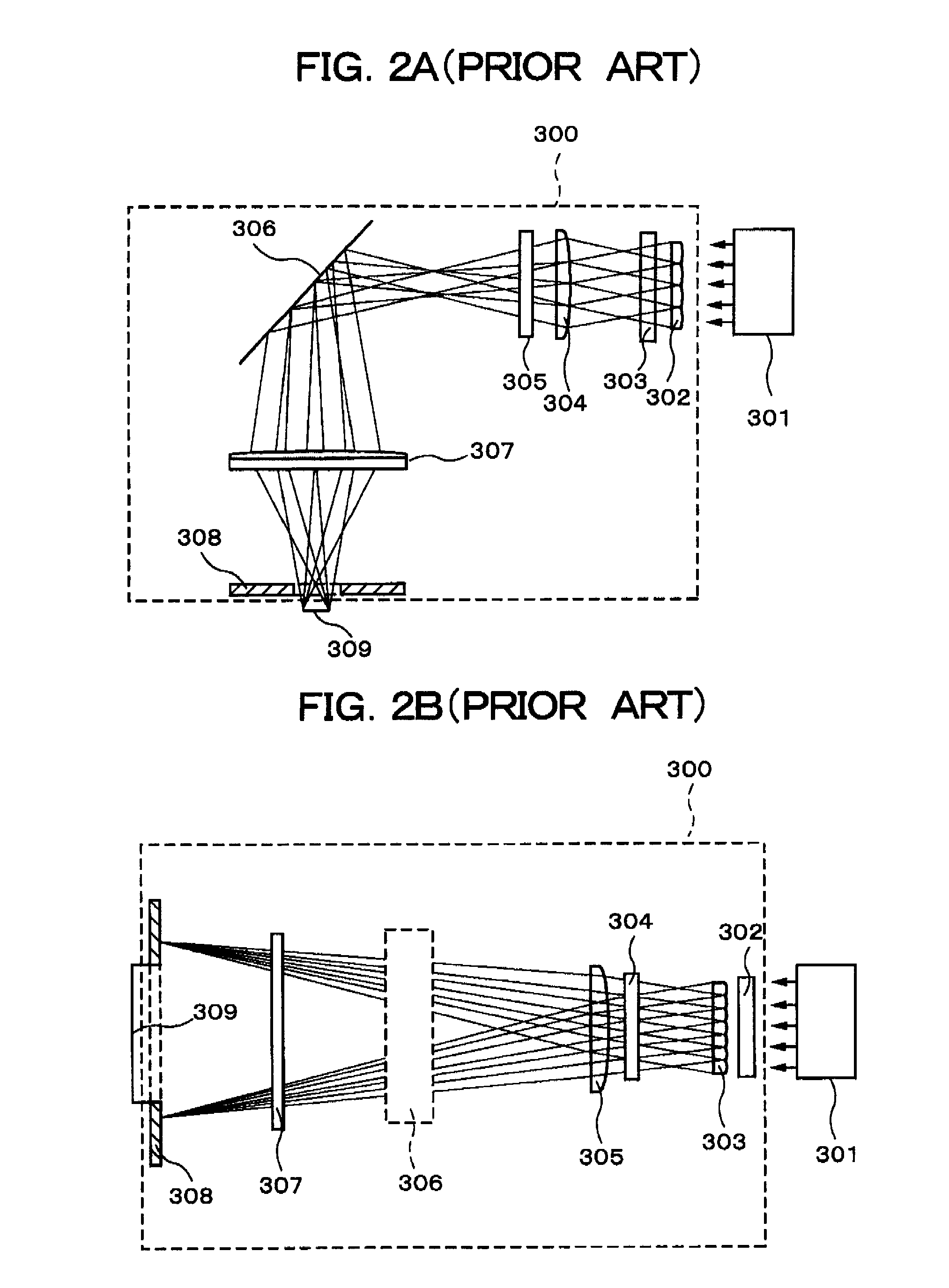Laser annealing apparatus
a laser annealing and annealing technology, applied in the field of laser annealing apparatus, can solve the problems of poor flexibility, inability to work efficiently, damage to optical fibers, etc., and achieve the effect of high-quality working performan
- Summary
- Abstract
- Description
- Claims
- Application Information
AI Technical Summary
Benefits of technology
Problems solved by technology
Method used
Image
Examples
first embodiment
[0036]Below, embodiments of the present invention will be described in concrete terms with reference to the attached figures. FIG. 5 is a schematic diagram showing the construction of a laser annealing apparatus according to the present invention. First, k (k is a natural number) laser oscillators 1-1 through 1-k which operate by Q switching are arranged side by side, and m (m is a natural number>k) partially reflective mirrors 2-1 through 2-m which have an arbitrary reflectivity and in which dielectric multi-layer films are formed on the respective front surfaces, as well as a plurality of totally reflective mirrors 3, are disposed in front (in optical terms) of the k laser beams that have a high peak power and are emitted from the k laser oscillators 1-1 through 1-k. In the present embodiment, the pulse oscillation timing of the laser beams emitted from the k laser oscillators 1-1 through 1-k is all synchronized, and the m partially reflective mirrors 2-1 through 2-m all have the ...
third embodiment
[0069]In the example described above, the power of the transmitted laser beams is controlled by varying the number of optical fibers of respective diameters. However, if the power is within the range restricted by the damage threshold value of the end surfaces of the optical fibers, it would also be possible to adjust the power of the transmitted laser beams by employing a spit ratio for the m (m is a natural number>k) partially reflective mirrors 2-1 through 2-m, as in the third embodiment described above.
[0070]Next, a fifth embodiment of the present invention will be described. In the first embodiment described above, the arrangement direction of the emission ends of the n optical fibers 5-1 through 5-n coincided with the long direction of the beam shape of the linear beam 14 emitted from the short-side focusing cylindrical lens 13. In the present embodiment, on the other hand, the emission ends of the n optical fibers 5-1 through 5-n are disposed so that these emission ends are s...
sixth embodiment
[0074]Next, the present invention will be described. FIG. 10 is a schematic diagram showing one example of the arrangement of the optical fibers in this embodiment. In the present embodiment, as is shown in FIG. 10, the emission ends of the n optical fibers 5-1 through 5-n are shifted in units of single fibers or a plurality of fibers in the direction perpendicular to the long direction of the beam shape of the linear beam 14 from the short-side focusing cylindrical lens 13, and the core diameters of the n optical fibers 5-1 through 5-n are also varied in units of single fibers or a plurality of fibers.
[0075]As is shown in FIG. 10, three sets of optical fibers having different core diameters and fiber lengths are provided. In the slender optical fiber set 101, the respective core diameters R101 are the shortest, and the respective fiber lengths L101 are also the shortest.
[0076]An intermediate optical fiber set 102 having core diameters R102 is linearly disposed so that this set is s...
PUM
| Property | Measurement | Unit |
|---|---|---|
| weight | aaaaa | aaaaa |
| wavelength | aaaaa | aaaaa |
| propagation delay time | aaaaa | aaaaa |
Abstract
Description
Claims
Application Information
 Login to View More
Login to View More - R&D
- Intellectual Property
- Life Sciences
- Materials
- Tech Scout
- Unparalleled Data Quality
- Higher Quality Content
- 60% Fewer Hallucinations
Browse by: Latest US Patents, China's latest patents, Technical Efficacy Thesaurus, Application Domain, Technology Topic, Popular Technical Reports.
© 2025 PatSnap. All rights reserved.Legal|Privacy policy|Modern Slavery Act Transparency Statement|Sitemap|About US| Contact US: help@patsnap.com



